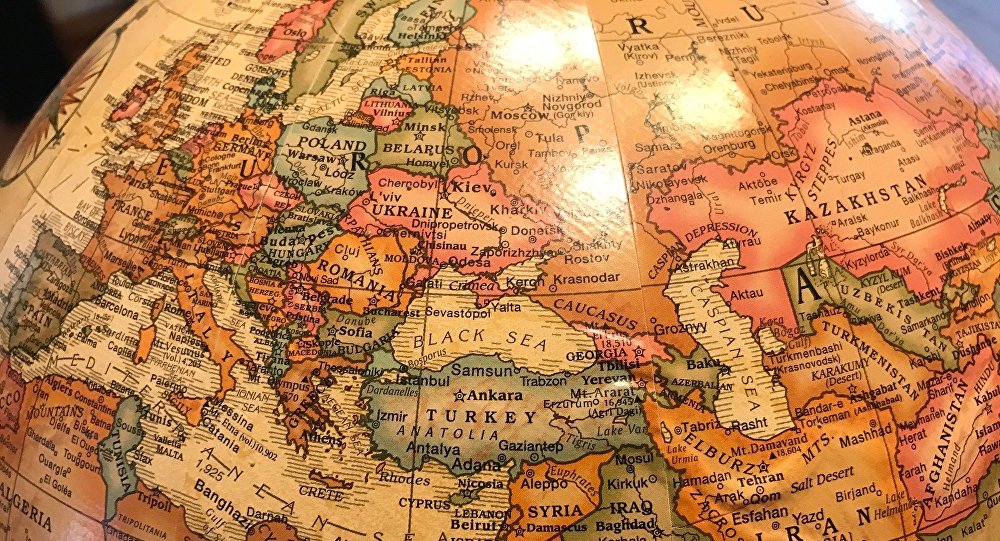The geopolitical earthquake caused by Putin with the war in Ukraine

This is why Italy, an economic power devoted to global exports, will have to deal with the regional shrinking accelerated by the war in Ukraine. The article by the geostrategic analyst, Francesco Galietti, founder of Policy Sonar
The war in Ukraine is turning large slices of the globe upside down. Russia, which in Putin's narrative claims a prominent place among the great of the earth, pays a very high price. Not only and not so much in terms of sanctions, but above all in terms of status.
Moscow wants itself to be big, but its not so brilliant conduct of the war relegates it so far to the humiliating condition of average power, mired in a longer and bitter conflict than expected, and now reduced to hoping for the 'Cypriot partition' of Ukraine.
To this deadly retaliation is added the curvature towards the East that Putin himself is increasingly imparting to Russia. There is something singular (and very bitter) in the destiny of this man who also, as a Petersburger, has for several years embodied the 'Westernizing' soul of his country, acting as a barrier to the strong Eurasist impulses that have always house in Moscow. Water under the bridge, obviously.
The furious Russian offensive in Ukraine, with continuous bloodshed among the civilian population, risks at this point to be the tombstone on any expectation of a rapprochement between Russia and the West, as well as of surgically separating the 'Siamese twins' Sino- Russians. If the current trend were to consolidate, a decisive Russian refocusing towards Asia should be taken into account.
This process of 'Manchurization' would go hand in hand with the marginalization of Russia to the west of the Urals, increasingly an offshoot-buffer emptied of geopolitical centrality, sadly comforted by the vestiges of an ancient prestige, with the imposing Orthodox cathedrals mutilated by their role of instrumentum kingdoms and degraded to a mere element of spiritual equipment. These are flashes, disturbing premonitions of a pax sinica that these days no longer appears surreal, and that only the intervention of Moscow power circles can perhaps avert. In the meantime, the geopolitics of the hottest hubs on the planet are reshaped. The world changes, even in geographies not far from the boot. The air is very bad.
In the Gulf, only Qatar has resolutely sided with NATO – in fact mostly alongside the Turks, Doha's traditional partners. On the other hand, the agreement between the Saudis and the Emiratis on the one hand and Washington on the other is creaking. The former are resentful of Joe Biden, who continues publicly to blame Kashoggi's terrifying execution of Mohammed Bin Salman. The latter, in turn, refuses to accept the moral element that forms an integral part of US foreign policy. The ensuing 'enemyisation' works more or less well against the Chinese and Russian autocracies, but creates problems in the petromonarchies of the Gulf, which live with annoyance liberal-democratic demands that could destabilize their authority.
The Emiratis, on their own, are attracting Russian oligarchs fleeing Western sanctions from everywhere. The most relevant aspect, however, is this: except for Qatar, which is a global gas superpower, the Gulf lacks the will to compensate for the lack of Russian hydrocarbons. For weeks, not surprisingly, the German press has been dishing up interviews with eminent economists who are openly discussing how to replace Russian oil with Iranian oil. This obviously puts Israel on alert, so that the geopolitical 'thawing' of Iran, albeit out of necessity rather than free choice, appears to be an unacceptable prospect.
The inevitable corollary of all this growing load of tensions is the overheating of the bottlenecks represented by the sea straits. Turkey presides over the Bosphorus and Dardanelles, but has also secured a presence south of Suez. As for Suez, it will be necessary to understand how much the Egyptian Al Sisi will be willing to indulge the twists and turns of his Saudi and Emirati cause givers.
For now, the suggestive plan of an Indo-Arab-Mediterranean multimodal corridor has been resized. The world is no longer flat, and major communicating vessels are in danger of being throttled in no time at all. In the East, India itself firmly supports China's Indo-Pacific strategy of containment alongside Japan, the US and Australia, but at the same time is reluctant to cut ties with Russia. New Delhi thus ends up favoring a Eurasian union, a bit as if the events beyond its borders did not concern it that much.
A trend of 'regional curling' is taking hold, which Italy, an economic power devoted to global exports, will have to observe carefully.
This is a machine translation from Italian language of a post published on Start Magazine at the URL https://www.startmag.it/mondo/il-terremoto-geopolitico-provocato-da-putin-con-la-guerra-in-ucraina/ on Sun, 20 Mar 2022 06:28:01 +0000.
